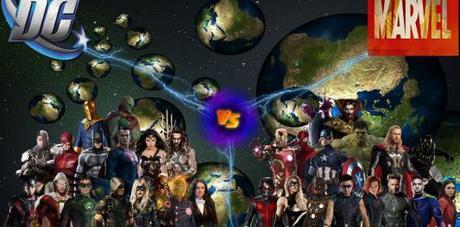
The fate of the superhero movie universe is largely being decided by two Kevin's, and the wildly differing approaches they took back on two separate October 2014 days tells us a lot about where their companies are right now.
First up: Kevin Tsujihara, the Stanford-educated CEO of Warner Bros. Entertainment and thus the highest-ranking Asian-American in Hollywood.
October 15, 2014 was a career-making day for Tsujihara. He'd only been on the job for a little over a year and a half, and in that time he'd consolidated power by ruthlessly pushing out his rivals, severed the studio's relationship with its longstanding financing partner (Legendary Entertainment) and made a slew of shrewd behind the scenes deals. He'd yet to see the fruits of his labor, though, stuck weathering the financial gains ( Man of Steel) and losses ( Transcendence) of those films his predecessors had put into motion. As such, he could be forgiven for the studio losing valuable market share and slipping 15% year-over-year in domestic box office. But that all changed on October 15, 2014, the day he announced the studio's new release strategy, the day he officially designated DC Comics superhero films as one of the three pillars upon which he would build his empire.
Second up: Marvel Studios President Kevin Feige, the golden child whose ingenuity and vision in creating the Marvel Cinematic Universe had shaken the entire film industry. His boss at Disney once told Bloomberg, "It's almost like [Feige has] a built-in GPS system for good storytelling."
When Feige woke up on the morning of October 28, 2014, his two most recent films were No.'s 1 ( Guardians of the Galaxy) and 2 ( Captain America: The Winter Soldier) on the list of the year's highest-grossing films. In fact, Guardians was still playing in over 400 theaters despite being in its 13th week of release. Widely predicted to be the studio's first genuine failure, Guardians had instead become one of its biggest success stories. If Feige could turn a movie featuring a talking tree and racoon and starring that chubby guy from Parks & Rec into not only a hit but also one of the best moviegoing experiences of the year he could clearly do no wrong. What would his Midas Touch turn to next? October 28 was the day he answered that question by unveiling Phase 3 of his grand plan.
I remember these two days very well. They were the columns between which the internet completely lost its shit, predictably so since WB officially announced 10 DC Comics movies to be released through 2020 and Marvel followed up with its own announcement of 8 movies to be released through 2019.
VS
Social media warriors rejoiced that both WB AND Marvel were finally committing to female-led ( Wonder Woman, Captain Marvel) and African American-led ( Cyborg, Black Panther) superhero movies, but lamented how far away the release dates still were. Wikipedia became the best friend to those of us looking for more background information about comic book arcs like Civil War and Ragnarok. Dream casting scenarios were bandied about (e.g., Katee Sackhoff would be a perfect Captain Marvel!), and the more impatient among us lamented all the rumored news (Benedict Cumberbatch as Doctor Strange, Sony agreeing to share Spider-Man with Marvel) which went unconfirmed (at least for the moment).
However, when I stepped back I marveled at just how many comic book movies were suddenly on the horizon (on top of those previously announced by Sony and Fox), and how easily it could all go to shit. Was WB putting too much trust in Zack Snyder? What if Batman v Superman sucks? What if Captain America: Civil War crumbles beneath the considerable weight of its sprawling cast?
Cut to today. Batman v Superman sucked ( our review).
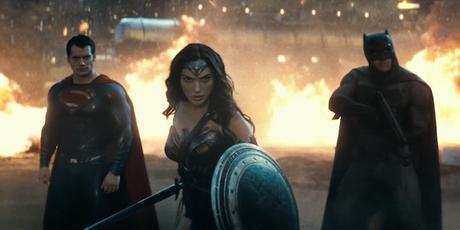 Suicide Squad sucked, and is one of the biggest hatchet jobs I've ever seen ( my review).
Suicide Squad sucked, and is one of the biggest hatchet jobs I've ever seen ( my review). 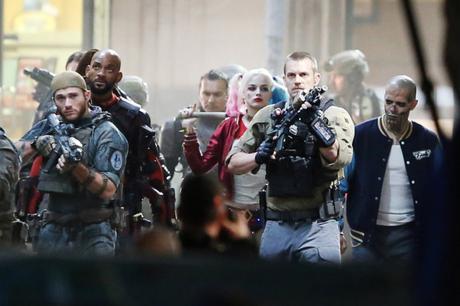 Civil War didn't (our review). In fact, it's in the conversation for best film of the summer.
Civil War didn't (our review). In fact, it's in the conversation for best film of the summer.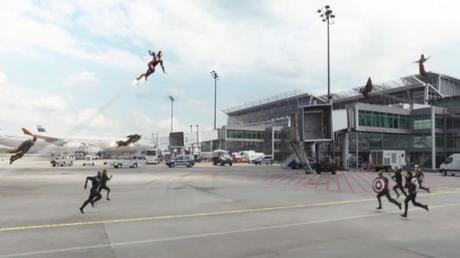 There are those who will point to the scoreboard (e.g., Batman v Superman still grossed $872m worldwide, Suicide Squad just pummeled any and all applicable box office records for the month of August) just as there are those who will vigorously defend BvS and Suicide Squad's merits as blockbuster entertainment. However, BvS fell well short of its financial goal, and is, by advanced metrics, the most front-loaded big budget movie in modern box office history. T here are pretty stark warning signs history is already repeating itself with Suicide Squad. And the persecution narrative being advanced by those BvS/Suicide Squad-loving fans who don't get why the critics have been so harsh isn't helping anything.
There are those who will point to the scoreboard (e.g., Batman v Superman still grossed $872m worldwide, Suicide Squad just pummeled any and all applicable box office records for the month of August) just as there are those who will vigorously defend BvS and Suicide Squad's merits as blockbuster entertainment. However, BvS fell well short of its financial goal, and is, by advanced metrics, the most front-loaded big budget movie in modern box office history. T here are pretty stark warning signs history is already repeating itself with Suicide Squad. And the persecution narrative being advanced by those BvS/Suicide Squad-loving fans who don't get why the critics have been so harsh isn't helping anything.
As box office analyst Jeff Bock told : "DC and their properties are highly desirable to audiences right now, as these massive debuts prove, however the rapid declines certainly don't help the long-term situation of these franchises [...] These aren't the highest quality films, and most have them have been rushed into production before the treasure map - the script - is truly mapped out."
Forbes, IndieWire and The Atlantic are but a few of the many outlets to publish thinkpieces questioning how exactly everything went so wrong so fast for WB's DC Film universe, everyone pointing to Kim Masters' report about the studio enlisting a company specializing in making 2-minute film trailers to create a different cut of Suicide Squad behind the director's back. But let's go back to October 2014 to realize how fucked this whole thing was from the start.
Think about where Kevin Tsujihara and Kevin Feige's big announcements came from: October 15, 2014 was Time Warners Investors Day, attended by stuffy shirt types and pissed off stockholders. That's when the world first learned there would be a Suicide Squad movie, among the 9 others announced by Tsujihara that day (although, to be fair, we actually already knew about BvS and Justice League, the former of which having been announced at San Diego Comic-Con two years prior). October 28, 2014 was a fan pep rally held at the El Capitan Theater in Los Angeles. That's when Kevin Feige announced Robert Downey, Jr. was officially going to be in the next Captain America movie, and so was Black Panther, to be played by 42's Chadwick Boseman. Then Chris Evans and Downey, Jr. walked out on stage together, playing up their forthcoming on-screen rivalry:
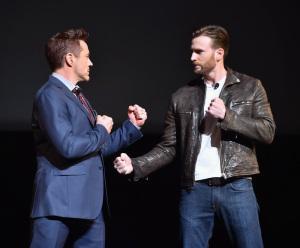 And then Chadwick Boseman joined them!
And then Chadwick Boseman joined them!
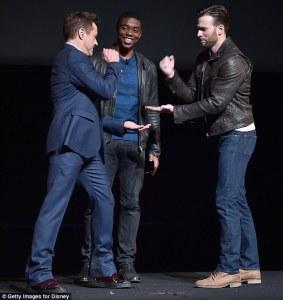 Compare that to WB's announcement where there was no hint of any of pomp and circumstance. Tsujihara announced Ray Fisher would star in a Cyborg movie in 2020, the company's first African-American led superhero movie since Catwoman, yet Fisher would later claim no one at the studio had actually let him in on their plans to give him his own movie. Contrary to that, when Feige revealed Chadwick Boseman was their Black Panther he made sure Boseman was not only informed but on hand and waiting in the wings for a surprise appearance to thunderous applause.
Compare that to WB's announcement where there was no hint of any of pomp and circumstance. Tsujihara announced Ray Fisher would star in a Cyborg movie in 2020, the company's first African-American led superhero movie since Catwoman, yet Fisher would later claim no one at the studio had actually let him in on their plans to give him his own movie. Contrary to that, when Feige revealed Chadwick Boseman was their Black Panther he made sure Boseman was not only informed but on hand and waiting in the wings for a surprise appearance to thunderous applause.
Obviously, context matters:
October 15, 2014 was the first Time Warner Investor Day since 2010, and it was deemed necessary because the Time Warner shares had lost 18.5% of their value in the three months after CEO Jeff Bewkes turned down Rubert Murdoch's $85 billion buyout offer. Bewkes was convinced his company could rebound and better build up its value before entertaining any kind of sale, but the investors needed proof of that, especially after Bewkes instituted a 10% workforce layoff. Investor Day was their attempt to stop the bleeding by putting all their cards on the table. Tsujihara was but one of several high-level Time Warner executives to present slideshows that day.
October 28, 2014 was a special event Marvel put together to make up for largely skipping Comic-Con that year. It was their experiment with whether or not Comic-Con was even necessary anymore. If they held their own Marvel event, similar to the annual Star Wars Celebration, they could better control the news cycle and cut down on the immense costs associated with SDCC.
However, between the two of them, Tsujihara and Feige, it came off like amateur hour vs. experience. It was a businessman moving widgets versus a slick producer directly engaging with fans and inviting their excitement and support. Tjusihara was like a lawyer "disclosing documents in a lawsuit to keep your opponent off-kilter-give them every piece you have, hoping the abundance of material makes them miss the information that is damning to you" (hat tip to BirthMoviesDeath); Feige was more like the Grand marshall of the parade. It was...well, exactly what you'd expect given the differing backgrounds at play.
Tsujihara took to the Time Warner Investors Day podium after nearly two decades of putting his MBA to good use by working in brand extension, ancillary product growth and online outreach for WB. He was named president of the home entertainment unit in 2005, and was added to the two-year succession contest which ensued in 2011 when Barry Meyer, the long-standing chief executive of the studio, announced his retirement.
Meyer's replacement would either be Tsujihara, Bruce Rosenblum, president of Warner Television (i.e., the studio's most profitable unit) or Jeffrey Robinov, president of Warner's movie division (which had come in No. 1 or 2 in global market share for nine of the past 10 years). Shockingly, Tsujihara, the one with no real film or TV production experience, won, and within 4 months of taking the job he watched both Rosenblum and Robinov walk out the door he'd pushed them toward. Rather than replace either, he set up new management structures on the film and TV sides which made everyone answerable to him, effectively anointing himself the "first studio chief with no experience in filmmaking," according to IndieWire.
Feige, on the other hand, went to the University of Southern California to study film because he'd read that's what George Lucas had done. Upon graduating, he landed a job as an assistant for producer Lauren Shuler Donner (yes, the wife of the guy who directed Superman: The Movie in 1978), going from Volcano to You've Got Mail to X-Men.
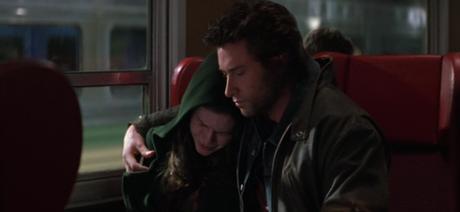 To prepare for the latter, he took a deep dive into the actual X-Men comics and became an instant fan of not just the X-Men but of the entire Marvel roster. However, his passion for and dedication to the comics was oddly foreign on the set, as he told Bloomberg:
To prepare for the latter, he took a deep dive into the actual X-Men comics and became an instant fan of not just the X-Men but of the entire Marvel roster. However, his passion for and dedication to the comics was oddly foreign on the set, as he told Bloomberg:
"I would hear people, other executives, struggling over a character point, or struggling over how to make a connection, or struggling over how to give even surface-level depth to an action scene or to a character. I'd be sitting there reading the comics going, 'Look at this. Just do this. This is incredible.'"
Avi Arad, president of Marvel Studios, recognized a kindred spirit, and hired Feige to be his second-in-command. The two of them spent years desperately trying to convince the studios making Marvel movies to at least pick up one of the damn comic books beforehand, both realizing how much easier it would be if they could just make their own movies. Thanks to the immense business acumen of eventual third partner in crime David Maisel that's exactly what they ended up doing, although Arad was gone by the time Iron Man arrived and Maisel cashed out after the studio sold out to Disney. That left Feige as the lovable face of the studio, greeted with chants of "Kevin! Kevin! Kevin!" at the Captain America: Winter Soldier premiere.
But just because Feige earns rock star greetings at premieres and has toiled away at actual film production for years doesn't mean he hasn't made mistakes. The Incredible Hulk was a fairly big miss. Iron Man 2 was micromanaged to death, and rushed into production to meet a release date despite having a director who begged for more time to fine tune the script (sound familiar, Suicide Squad fans?). Thor: The Dark World, Avengers: Age of Ultron and Ant-Man were all troubled productions on some level or another, mostly down to the inevitable conflicts between independent-minded directors rubbing up against Marvel's corporate mandates and inevitable meddling in post-production.
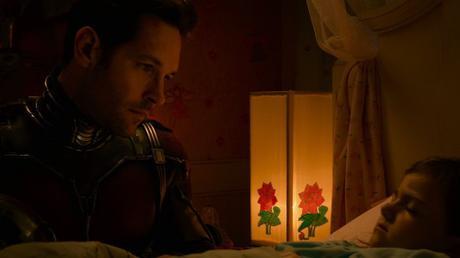 To be fair, through all of that Feige was subject to the whims of the world's worst boss, the notoriously penny-pinching Ike Perlmutter, who only ever wanted to make Marvel movies to spur toy sales and found financial risk so abhorrent he almost torpedoed Civil War rather than pay Downey, Jr. Feige is free of Perlmutter now, having convinced Disney's CEO to grant him complete control of Marvel Studios l ess than a year after announcing Phase 3. His biggest problems right now are ensuring his co-production partners at Sony don't throw their egos around and screw up S pider-Man: Homecoming (which is always a threat when working with Sony), and convincing the world that Doctor Strange is worth seeing, whitewashing controversy and all.
To be fair, through all of that Feige was subject to the whims of the world's worst boss, the notoriously penny-pinching Ike Perlmutter, who only ever wanted to make Marvel movies to spur toy sales and found financial risk so abhorrent he almost torpedoed Civil War rather than pay Downey, Jr. Feige is free of Perlmutter now, having convinced Disney's CEO to grant him complete control of Marvel Studios l ess than a year after announcing Phase 3. His biggest problems right now are ensuring his co-production partners at Sony don't throw their egos around and screw up S pider-Man: Homecoming (which is always a threat when working with Sony), and convincing the world that Doctor Strange is worth seeing, whitewashing controversy and all.
Kevin Tsujihara has already made many of those same kinds of mistakes, which is to be expected. Film production is not his forte, and he has to oversee that as well as the TV side of thing. When Jeff Bewkes had the choice who to select to replace Barry Meyer he picked Tsujihara largely because of his superior experience in the digital and online realm, having "spearheaded UltraViolet, the industry-wide initiative to woo consumers to buy digital versions of their favorite movies and store them in the cloud."
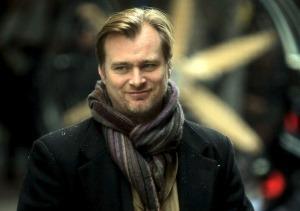 Jeff Robinov, on the other hand, had worked directly in film development and production for decades, being most directly responsible for cultivating the studio's fruitful relationship with Christopher Nolan. When Robinov was passed over for promotion and subsequently departed his position after Tsujihara iced him out, Ben Affleck and Baz Lurhmann both stepped forward to publicly support him. "I don't know what I would do if Jeff weren't there. I don't know from my view anyone else there who knows how to make movies," read part of Affleck's lengthy official statement on Deadline. "Last year, when we were moving towards a Christmas release date for Gatsby, Jeff Robinov said to me, 'Perhaps you'll be able to make the release date. But will it be the movie that you want it to be? If you had more time to work on the visual effects and music, would you have a better chance of realizing your vision for the film?' Jeff was resolute that the most important thing was for me to do my best possible work," argued Lurhmann.
Jeff Robinov, on the other hand, had worked directly in film development and production for decades, being most directly responsible for cultivating the studio's fruitful relationship with Christopher Nolan. When Robinov was passed over for promotion and subsequently departed his position after Tsujihara iced him out, Ben Affleck and Baz Lurhmann both stepped forward to publicly support him. "I don't know what I would do if Jeff weren't there. I don't know from my view anyone else there who knows how to make movies," read part of Affleck's lengthy official statement on Deadline. "Last year, when we were moving towards a Christmas release date for Gatsby, Jeff Robinov said to me, 'Perhaps you'll be able to make the release date. But will it be the movie that you want it to be? If you had more time to work on the visual effects and music, would you have a better chance of realizing your vision for the film?' Jeff was resolute that the most important thing was for me to do my best possible work," argued Lurhmann.
Of course, this is Hollywood. Affleck didn't exactly sever his ties with WB in protest. He's still entrenched at the studio living out the type of give-and-take relationship he once mocked in Jay and Silent Bob Strike Back, "You gotta do the safe picture [ Batman v Superman]. Then you can do the art picture [the upcoming drama The Accountant]." Nolan was said to be intensely loyal to Robinov, but his next movie, Dunkirk, is still being distributed by WB, not by Robinov's new mini-major Studio 8.
Part of that comes down to contractual obligations (e.g., Nolan's production label, Syncopy, has a deal with WB). But part of it can be positively attributed to Tsujihara maintaining a positive relationship with the studio's cherished creatives. He is, after all, widely credited with being most directly responsible for convincing J.K. Rowling to revisit the Harry Potter world for them with Fantastic Beasts and Where to Find Them.
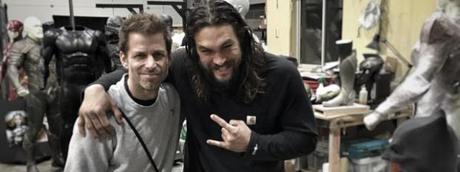 And just as Feige learned from his mistakes Tsujihara is apparently learning from his as well. As of last April, no one appeared to be in charge of the DC Extended Universe, as per THR, "[Zack] Snyder, now finishing Batman v. Superman, is a key player, along with his wife, Debbie. Also in the mix are producer Charles Roven and a team of Warners executives, including president of creative development and worldwide production Greg Silverman and executive vp Jon Berg as well as DC Entertainment president Diane Nelson and DC chief creative officer Geoff Johns." Agents whose clients had gone in one some of these projects lamented "[WB] just haven't been thorough about their whole world and how each character fits and how to get the most out of each writer's time by giving them direction." It "felt like they were throwing shit against the wall to see what stuck."
And just as Feige learned from his mistakes Tsujihara is apparently learning from his as well. As of last April, no one appeared to be in charge of the DC Extended Universe, as per THR, "[Zack] Snyder, now finishing Batman v. Superman, is a key player, along with his wife, Debbie. Also in the mix are producer Charles Roven and a team of Warners executives, including president of creative development and worldwide production Greg Silverman and executive vp Jon Berg as well as DC Entertainment president Diane Nelson and DC chief creative officer Geoff Johns." Agents whose clients had gone in one some of these projects lamented "[WB] just haven't been thorough about their whole world and how each character fits and how to get the most out of each writer's time by giving them direction." It "felt like they were throwing shit against the wall to see what stuck."
If they weren't aware of the shit-show they were running they sure as heck were after BvS came out. Cut to May this year, Tsujihara further realigned the management structure at the studio, newly creating a separate branch dubbed DC Films to be run DC COO Geoff Johns and Warners Executive VP John Berg. Johns is essentially their Kevin Feige, and Berg stands in for the MCU's various money men you never hear about. Ben Affleck is practically co-directing Justice League now, since it was too late to remove Zack Snyder from the equation. Charles Roven has essentially been reassigned. Furthermore, as Collider summed up:
Aquaman was initially on a fast track with multiple scripts being written at the same time, WB recently pulled the throttle back, allowed Wan and newly installed DC Films head Geoff Johns to really nail the story, and then hired a screenwriter to pen the script. And while Seth Grahame-Smith was poised to make his directorial debut with The Flash, Warner Bros. recently changed course, instead opting for a director who they know can already handle a feature film production.
Plus, this year's San Diego Comic-Con was a huge turning point. WB's Wonder Woman and Justice League trailers dominated the conversation on social media, partially because those trailers were instantly unleashed to the public whereas Marvel made some of its new footage Comic-Con-only exclusives.
But Tsujihara is still just a businessman moving widgets. At a presentation for theater owners at this year's CinemaCon, he announced new release dates for two still-untitled DC movies, and implied Ben Affleck was officially on board to write, direct and star in a solo Batman movie, reportedly angering the star in the process since no such deal is officially in place. Since then, Affleck has repeatedly maintained he will only move forward on a Batman movie when the script is ready.
The studio is apparently willing to wait because Suicide Squad and its $22m worth of reshoots and magically disappearing box office in the weeks to come is what happens when you rush things.
But Kevin Feige could have told them that back on October 15, 2014 when Suicide Squad was first announced. He still remembers what it was like trying to rush Iron Man 2 through production just to meet a release date. Maybe the upside here is that WB, dragged down by a regime change, is experiencing the inevitable growing pains of a nascent cinematic universe, and that while it was too late to save Suicide Squad after BvS turned into a giant turd crapping over the entire world there's still time to salvage Wonder Woman and Justice League. Maybe. They have not earned our trust, regardless of how good certain trailers might look. October 28, 2014 was a victory lap for Marvel Studios, a display of extreme showmanship and confidence. Nothing they've done since then has really given us any reason to doubt them now.

